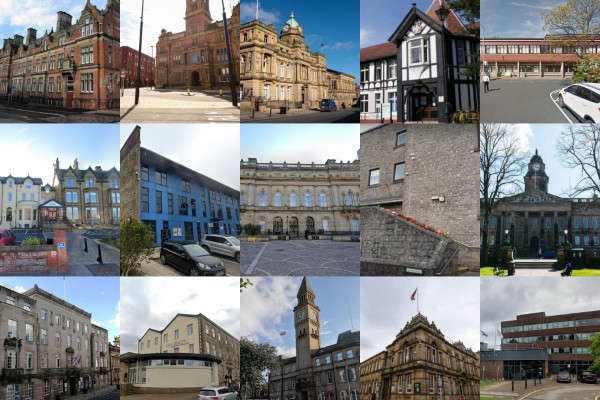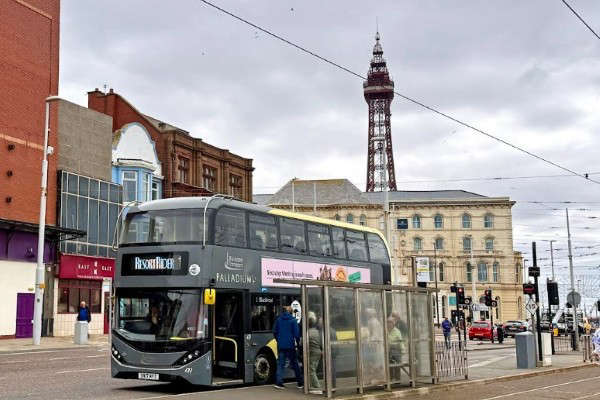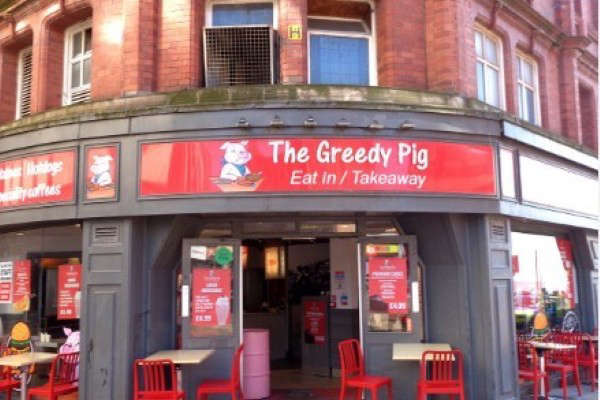
Almost two thirds of the Lancashire public are opposed to plans that would see their local council scrapped.
That is according to the results of a survey into a government-ordered shake-up under which all 15 main councils in Lancashire would be axed and replaced with a handful of new authorities. A clear majority of the more than 13,000 people who responded wanted to keep things the way they are.
The Labour government announced last December that it wanted to bring an end to the so-called ‘two-tier’ system that operates in 21 English counties, Lancashire amongst them.
Under that set-up, which dates back to 1974 in its current form, responsibility for different services is largely divided between Lancashire County Council and a dozen more local, district authorities – Preston, South Ribble, Chorley, West Lancashire, Fylde, Wyre, Lancaster, Ribble Valley, Burnley, Hyndburn, Rossendale and Pendle.
The county council looks after big-ticket items like adult and children’s social services, highways, transport and education across almost all of Lancashire, while the districts take care of the likes of waste collection, park maintenance, planning applications and housing in their own smaller localities.
The exceptions are the two councils serving Blackpool and Blackburn with Darwen, which are responsible for all local services in their respective areas.
It is that structure – known as a ‘unitary’ system – that the government wants to introduce Lancashire-wide, but by merging different council areas to form new streamlined, much larger, authorities.
However, the prospect has proved hugely contentious, with existing authority leaders disagreeing over the number and shape of the replacement councils – and even whether the changes should happen at all.
Now, in their first say on the subject, Lancashire residents have made it clear they have no desire to see the back of the councils that currently serve them.
More than 13,400 people, including some who only work in Lancashire, took part in a survey carried out last month on behalf of all the county’s local authorities – and of the 10,893 who answered a specific question about what type of council system they would prefer in future, 63 percent said they wanted to retain the existing arrangements.
Twenty-three percent opted for the government’s proposed new larger unitary councils, while the rest were unsure.
Information provided with the survey showed five possible scenarios for the future of local government in Lancashire that are currently under consideration by the existing councils – identifying which areas would be merged – but respondents were not asked about their individual preferences on that front.
In a fillip for Lancashire’s present local authorities, 63 percent of the 11.336 people who answered a request to rate the council services they currently receive responded positively, while 18 percent were neutral. Fewer than one in five people had a negative experience to report.
Of those who left specific comments, three times as many – 1,500 people – had something positive to say about their personal experience of Lancashire’s local authorities than the number who registered a complaint.
Praise was heaped on “helpful” councillors and council staff, with particular appreciation of their local knowledge, the benefit of small community initiatives and the efficiency of household bin collections.
However, some services came in for criticism, including the perceived poor quality of pothole repairs.
Meanwhile, in spite of the overall sentiment that Lancashire’s 15 councils should be spared the chop, thousands of people did see upsides to the planned overhaul.
Amongst the potential positives noted by respondents was an end to the “confusion” over which authority they should approach in the county council area when faced with different issues.
It was also suggested that the redesign would offer better value for money than the current split, with savings purported to be realised from fewer councillors and staff – and less claimed duplication of roles. That chimes with one of the government’s own main justifications for the changes.
Nevertheless, around 4,000 people said they could foresee no benefits to the shift – or were actively concerned about it. The reasons for the scepticism included fears that local identity and representation may be lost and that smaller towns and villages could be neglected within larger local authority areas.
The government has said its preference is for new unitaries to serve at least half a million people, but it has indicated that it is prepared to be flexible with that figure in order to ensure that the replacement authorities make practical and geographical sense.
Cratus Group, which undertook the survey, stressed in its presentation of the results that they had not been derived from a “representative poll” of Lancashire’s 1.5 million residents – because the timescale and budget for the work had not allowed for such an exercise to be carried out.
However, the firm said it was nevertheless confident that the feedback is “robust and highly useful”.
“The high level of engagement and the broadly representative nature of the respondents’ demographics mean that the data provides clear and valuable trends,” it added.
The outcome will now be fed into the ongoing process of drawing up proposals to determine the future council landscape in Lancashire, which the government has requested the existing 15 councils provide by 28th November.
A longstanding lack of consensus on the issue between those authorities means it is likely multiple options will ultimately be put forward – potentially all five of those presented as part of the residents’ survey, which include the creation of two, three, four or five unitaries, with two versions of the four-council scenario currently being proposed.
There was a disproportionately high number of survey responses – 2,361 – from the FY8 postcode area, which includes Lytham and St. Annes. That was attributed to the fact that Fylde Council had sent a letter to every household in the borough advising of the survey and also setting out the authority’s support for the current system and opposition to any changes.
There were also more than 1,300 responses from the PR4 postcode which incorporates other parts of Fylde, as well as Preston and South Ribble. All other postcode areas generated fewer than 600 responses.
In order to ensure the outcome of the survey had not been skewed as a result of the level of participation from Fylde residents, the Local Democracy Reporting Service (LDRS) understands that work was undertaken to strip out the responses from FY8 and PR4 addresses to assess whether the results were significantly different in that scenario – but they were found to be broadly similar and so were not considered to have distorted the process.
Only one postcode area in the whole of Lancashire – Preston PR1, the city centre and surroundings, plus neighbouring Penwortham – had a net proportion of respondents who were more in favour of the changes than against them, with 44 percent here preferring new unitaries. Preston PR5 – incorporating swathes of South Ribble, including Bamber Bridge and Lostock Hall – was the area second most in favour of the changes, but a majority of 48 percent still chose to retain the current councils.
FY8 residents were the most supportive of the existing system – with 85 percent of respondents giving it their backing.
Cratus Group said in its overall commentary on the results that they “reflected a contentment with the current system” and “an overwhelming preference for existing councils to remain as they are”.
“This presents a clear challenge regarding future communications. It is vital to explain to the public that local government reorganisation is a national policy with wider objectives, meaning the option of no change is not viable.”
The company added: “People are very invested in their day-to-day services, with a high value placed on all elements of services provided by local government. If proposed models can clearly show how the new councils will at least maintain, and potentially even improve, the current system, people are more likely to give the changes the benefit of the doubt.”
‘Vital services must be looked after’
The Reform UK leader of Lancashire County Council, Stephen Atkinson – a longstanding opponent of breaking up the two-tier local authority system in Lancashire – says residents and businesses must be “at the very heart” of any overhaul that does now take place.
After taking charge at County Hall in May, he attempted to secure permission from the government for a legally binding referendum that would have allowed locals to have the ultimate say on the shake-up, but that request was refused.
In a statement to the LDRS about the survey that was carried out instead, County Cllr Atkinson said: “I would like to thank everyone who took the time to complete these engagement surveys.
“The data produced means all of Lancashire’s councils now have common information helping us to understand which services residents see as most important, priorities for local government to focus on in the future and initial thoughts on moving to larger unitary councils.
“A very high percentage of respondents, 63 per cent, said they wanted to keep the current local government structure.
“The information will now be used to help prepare our developing proposals for submission to government in November.
“Since taking office in May, I have also reached out to Government to discuss the pace of any changes which may take place in the county.
“It is important that any reorganisation is done with the interests of our residents and businesses at the very heart of the decision making process.
“Also any transition to new authorities must be carefully managed, taking care of vital local services on which some of our most vulnerable residents depend.”
As the – then Conservative – leader of Ribble Valley Borough Council for six years from 2019, County Cllr Atkinson regularly championed what he said were the benefits district authorities bring to residents.
What do others think?
A separate ‘stakeholder’ survey sought the opinions of businesses, voluntary and community groups and public sector organisations like NHS bodies, as well as parish and town councils – the lowest tiers of local government, which ministers have indicated could play a key role in the new world order in places like Lancashire once the new urinary system comes into being.
Residents were also able to take part, but in contrast to the survey specifically targeted at them, there was what Cratus described as “strong support from the stakeholder group” for a “simplification” of the current council structure in Lancashire
Respondents – of which there were 409 in total – recognised “the potential benefits of…a single point of contact, reduced duplication and more efficient service delivery”.
A summary of the overall sentiment added: “There was…optimism about economic development opportunities if councils could project a stronger, unified voice to government and investors.
“Many supported the idea that reorganisation could bring greater fairness in funding and more consistent service standards provided safeguards are in place. While a small minority opposed reorganisation outright, many more opposers expressed conditional support.
“Stakeholders were less divided on whether change was needed and more focused on how it should be carried out.”
A separate ‘stakeholder’ survey sought the opinions of businesses, voluntary and community groups and public sector organisations like NHS bodies, as well as parish and town councils – the lowest tiers of local government, which ministers have indicated could play a key role in the new world order in places like Lancashire once the new urinary system comes into being.
Residents were also able to take part, but in contrast to the survey specifically targeted at them, there was what Cratus described as “strong support from the stakeholder group” for a “simplification” of the current council structure in Lancashire
Respondents – of which there were 409 in total – recognised “the potential benefits of…a single point of contact, reduced duplication and more efficient service delivery”.
A summary of the overall sentiment added: “There was…optimism about economic development opportunities if councils could project a stronger, unified voice to government and investors.
“Many supported the idea that reorganisation could bring greater fairness in funding and more consistent service standards provided safeguards are in place. While a small minority opposed reorganisation outright, many more opposers expressed conditional support.
“Stakeholders were less divided on whether change was needed and more focused on how it should be carried out.”

 Wine bar boss sets date for Lytham opening of new branch
Wine bar boss sets date for Lytham opening of new branch
 Michael not clowining around with this spooky display
Michael not clowining around with this spooky display
 Potential buyers in discussions over sale of Blackpool’s iconic North Pier
Potential buyers in discussions over sale of Blackpool’s iconic North Pier
 Bus firm wants ‘honest conversation’ as it launches second consultation
Bus firm wants ‘honest conversation’ as it launches second consultation
 Amusements cafe operator taking over former KFC unit in resort
Amusements cafe operator taking over former KFC unit in resort
 Residents urged to have say over phone mast proposals
Residents urged to have say over phone mast proposals


